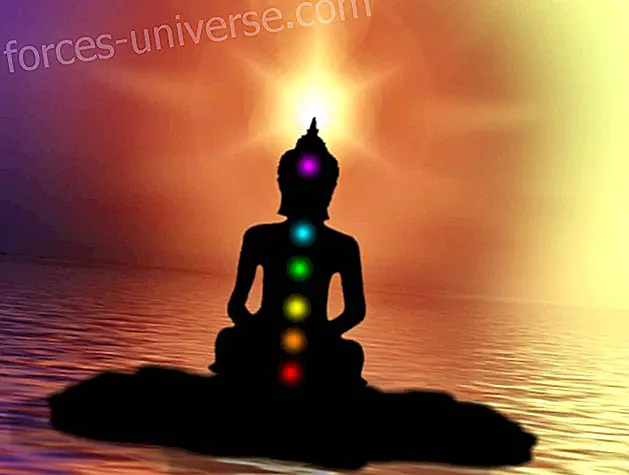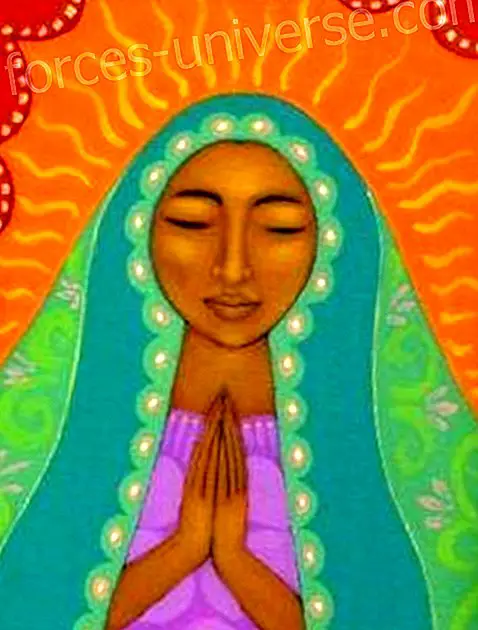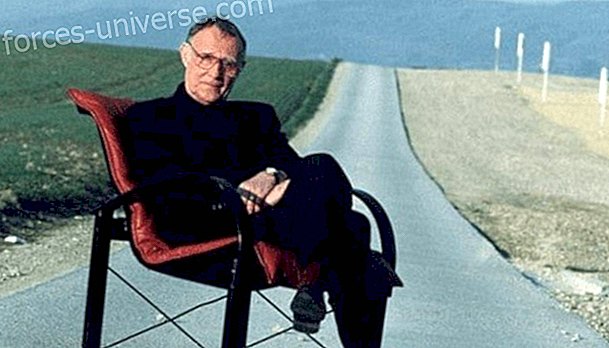
THE TRUTH is not "what is", but the understanding of "what is" opens the door to truth. »
INTERLOCUTOR: Anything I hear you say in this room is very simple and easy to understand, but as soon as I go outside I am lost, and I don't know what to do when I am alone.
Krishnamurti: Look, sir, what he has said that speaks to you is very clear. He is pointing out “what is”, which is in you, is not in this room, is not in who speaks to you; he is not making any propaganda, he wants nothing from you, neither his flattery nor his insults nor his applause. It is in you, your life, your misery, your despair; You have to understand that, not only here, because here you are being cornered, and perhaps you are facing yourself for a few minutes. But when I leave this room, that's when the party starts! We are not trying to induce him to act, to think, to do this or that: that would be propaganda. But if you have listened with your heart and with a mind that is alert - that has not been influenced - if you have observed, then, when you go outside, that will go with you wherever you are because that is yours, since you have understood.
I . : What role does the artist play?
K .: Are artists different from other human beings? Why do we divide life between the scientist, the artist, the housewife, the doctor? The artist may be a little more sensitive, to observe more, to be a little more active, but he also has his problems as a human being. You can paint wonderful pictures, or write beautiful poems, or make things with your hands, but you are still a human being, anxious, fearful, jealous and ambitious. How can an "artist" be ambitious? If it is, it has stopped being an artist. The violinist or pianist who uses his instrument to earn money, to gain prestige - imagine that - is not a musician. Is a scientist who works for some government, for society, for war? That man who goes after knowledge and understanding has been corrupted just like other human beings. He may be wonderful in his laboratory, or he may express himself very beautifully on a canvas, but inwardly he is tormented like the others, and is mean, false, anxious, fearful. Surely an artist, a human being, an individual is something total, indivisible, complete. Individual means undivided, but we are not individuals, we are fragmented, divided human beings: the businessman, the artist, the doctor, the musician. And yet, we live a life ... but I don't have to describe it because you already know it!
I .: Sir, what criterion is used when choosing between several possibilities?
K .: Why do we choose? When we see something clearly, what is the need to choose? Listen to this, please. Only a confused, insecure, unclear mind is the one that chooses. I am not talking about choosing between black and white, but about choosing psychologically. Unless we feel confused, why do we have to choose? If we see something clearly, without any distortion, is there any need to choose? There are no alternatives; the alternatives exist when we have to choose between two physical paths; We can go in one direction or the other. But alternatives also exist in a mind that is divided in itself and is confused; therefore, as it is in conflict, it is violent. It is the violent mind that says it will live peacefully, and reacting becomes violent. When we clearly see the nature of violence as a whole, from its most brutal form to the most subtle of its manifestations, then we are free from it.
I . : When will we be able to see all that?
K .: Have you observed a tree completely?
I .: I don't know.
K .: Sir, do it sometime if you are interested in these things.
I .: I always thought I had, until I acted again.
K .: To find out, let's start with the tree, which is the most objective thing. Observe it completely, that is, without the observer, without division, which does not mean that you identify with the tree, you do not become the tree, that would be too absurd. But observing it implies looking at it without the division between you and the tree, without the space created by the "observer" with your knowledge, with your thoughts, with your prejudice about that tree; Do it not when you are angry, jealous, or desperate, or full of what you call hope, which is the opposite of despair and, therefore, is not hope at all. When he observes it, when he sees it without division, without that space, then he can see its totality.
When you observe the wife, the friend, the husband, whatever you want, when you observe without the image, which is the accumulation of the past, you will see what an extraordinary thing happens. Never before have you seen a similar thing in your life. But to observe totally implies that there is no division. Some people take LSD and other drugs in order to eliminate the space between the observer and the observed. I have not taken them; and once that game begins, he will be lost, will depend forever on them, and that brings his own misfortune.
I . : What is the relationship between thought and reality?
K . : What is thought in relation to time, thought in relation to the measurable and what is immeasurable? What is the thought? Thought is the response of memory, that is obvious. If we had no memory we could not think at all and we would be in a state of amnesia. Thought is always old, thought is never free, thought can never be new. When the thought is silent, a new discovery may occur; but it is not possible for thought to discover something new. Is that clear? Do not agree with me, please. When we ask a question and are familiar with it, our answer is immediate. What is your name? We respond immediately. Where do you live? The answer is instantaneous. But it takes a while when it comes to a more complex question. In that interval, the thought is watching, trying to remember.
So the thought, in its desire to find out what the truth is, is always observing according to the past. That is the difficulty of the search. When we search, we have to be able to identify what we have found; and what we find and can recognize is the past. It is obvious, then, that thought is time; This is simple, isn't it? Yesterday we had an experience of great delight, we thought about it and we wish it to be repeated tomorrow. Thinking, thinking of something that has given him pleasure, he wishes again tomorrow; so, "tomorrow" and "yesterday" constitute the time interval in which we will enjoy that pleasure, in which we will think about it. Thought, therefore, is time; and thought can never be free because it is the answer of the past. How can thought find something new? This is possible only when the mind is completely silent; not because she wants to find something new, because then that silence arises for a reason, and therefore it is not silence.
If you have understood this, you have understood everything and your question has even been answered. He is always using thought as a means to find, to ask, to inquire, to observe. Does that mean that thought can know what love is? Thought can know what we call love and demand that pleasure again in the name of love. But it is not possible that thought, being the product of time, the product of measurement, can understand or find that which is not measurable. Then, then, the question arises: How can we make thought silent? We can not. Maybe we can go deeper into that on another occasion.
I .: Do we need rules that guide our lives?
K .: Mrs., you haven't heard anything I've been saying during this talk! Who will set the standards? The churches have done it, the tyrannical governments have done it, or you yourself have established the rules of your own behavior, of your own behavior. And you know what that means: a battle between what you think it should be and what you are. What is more important: understand what you should be, or what you are?
I .: What am I?
K .: Let's find out. I have told you what you are: your country, your furniture, your ambitions, your responsibility, your race, your idiosyncrasies and prejudices, your obsessions, you know what it is! Through all that you want to find out the truth, God, the reality. And since the mind does not know how to free itself from all this, we invent something, an external agent, or give meaning to life. Therefore, when we understand the nature of thought - not verbally, but we are really aware of it, then, when we have a prejudice, let us observe it, and we will see that our religions are a prejudice, and that Identification with the country is also a prejudice. We have so many opinions, so many prejudices; just observe one of them completely, with our mind, with love; take care of him, watch him. Let's not say I shouldn't or debo, just look at it. And then we will see how to live without prejudice. Only a mind free from prejudices, conflicts, can see what the truth is.
Thanks Encarnita !!






